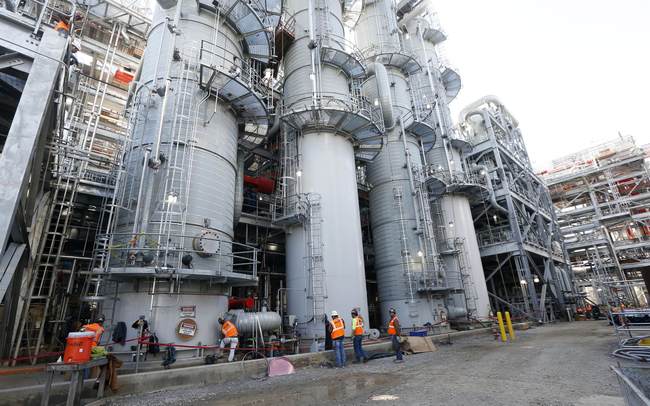
By Autumn Hanna and H. Sterling Burnett
It looks like Louisiana is getting it right. Recent legislation suggests the state is siding with taxpayers—not carbon capture corporations—on the boondoggle known as Carbon Capture and Storage (CCS).
Anticipating the carbon capture giveaways in the reconciliation bill, signed into law July 4, Louisiana lawmakers took a stand for fiscal responsibility and Pelican State taxpayers against profiteers chasing billions in unnecessary, expensive subsidies.
Louisiana backed that up with new laws to protect landowners from eminent domain abuse by CCS pipeline developers. One measure requires companies to prove they provide a public benefit in any land access dispute. That’s a high bar because CCS projects don’t serve the public. They serve private interests.
Unfortunately, the reconciliation bill ignores the risks CCS poses to property rights and taxpayers’ wallets. Instead of ending 45Q—the notoriously generous carbon capture tax credit—Congress expanded it. Originally projected to cost more than $30 billion over the next decade, the latest expansion adds $14 billion more. Independent estimates put the full cost as high as $800 billion. That’s not fiscal discipline. That’s a massive taxpayer liability for an industry that’s never proven it can stand on its own.
The industry’s track record is dismal. A study of 13 major CCS projects found 10 either failed or underperformed. Power sector CCS has a 90 percent failure rate. According to the Institute for Energy Economics and Financial Analysis, “not one single CCS project has ever reached its target CO2 capture rate.” Yet taxpayers are being told to keep footing the bill.
Meanwhile, the 45Q program operates with zero meaningful oversight. Companies self-report emissions reductions with no EPA verification and no cap on subsidies. There’s no auditing, no accountability, just billions in tax credits flowing out the door based on unverified claims.
And it’s not just money at risk. Public safety is on the line. In Mississippi, a CO2 pipeline rupture sent dozens to the hospital, leaving some with permanent disabilities. In Illinois, repeated leaks from CCS wells have raised concerns about groundwater contamination. In Louisiana, a pipeline released more than 100,000 gallons of dangerous gas—residents only learned about it through Facebook.
Adding insult to injury, CCS developers are claiming “common carrier” status to justify seizing private land for pipelines and storage—using eminent domain to take land over owners’ objections. These takings enrich private developers, not the public. That’s not just bad policy. It’s a betrayal of taxpayer trust.
The new law also increases the 45Q credit to $180 per ton for all uses, including captured carbon used for enhanced oil recovery (EOR), a technique the oil industry has used for decades to squeeze more oil from aging fields. EOR remains the only commercially viable use of captured CO2, and 45Q has long functioned as a backdoor subsidy for oil and gas. A recent report found that most CCS projects are backed by the oil, gas, and ethanol industries. Companies that used to fund EOR on their own, as part of normal oil and gas operations, get the added bonus of taxpayer support—talk about “windfall profits.”
Under the reconciliation bill, CCS and fossil fuel companies can exploit tax-shielding ownership structures and deduct intangible drilling costs when calculating their corporate alternative minimum tax.
These handouts don’t create jobs for Louisiana or strengthen American energy independence. They enrich Wall Street at taxpayers’ expense while propping up a technology that doesn’t deliver—one that even its backers quietly admit is a bust.
Fortunately, Louisiana lawmakers have stepped up. The state’s new laws will help protect property owners, communities, and taxpayers alike. Now, it is time for federal lawmakers to finish the job and end wasteful CCS subsidies for good. The oil and gas industry doesn’t need help, and outside of EOR, CCS has no economic or environmental justification.
The choice is clear: stand with Louisiana families and for fiscal responsibility—or keep handing out corporate welfare for a failed technology. Voters will remember where lawmakers stand.
Autumn Hanna ([email protected]) is the Vice President of Taxpayers for Common Sense, a national nonpartisan budget watchdog based in Washington, DC
















